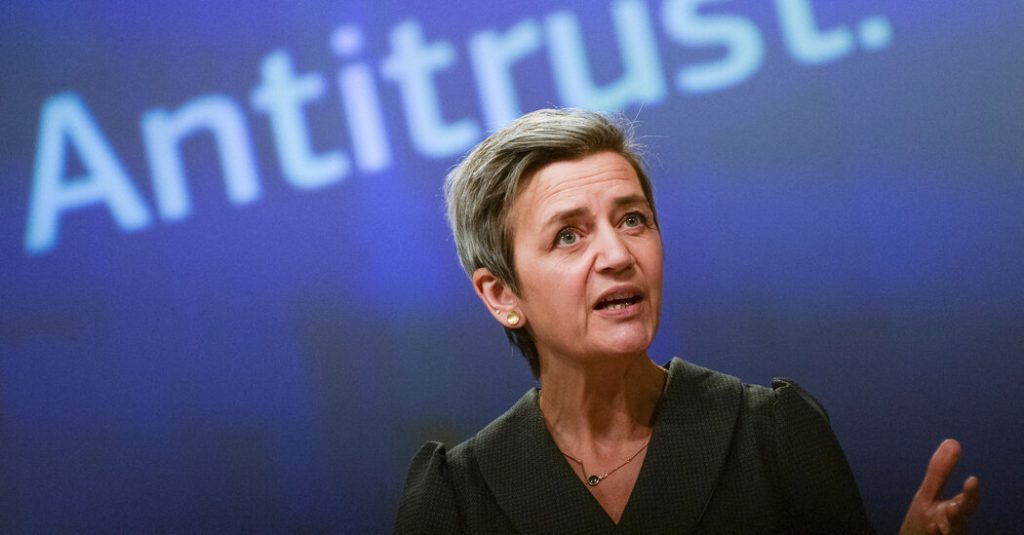Navigating the Tensions: Apple’s App Store Controversy and the European Union’s Digital Markets Act
The digital landscape is once again at the crux of a major legal and regulatory standoff, centering around Apple — a titan in the technology sector — and its alleged imposition of unfair restrictions on developers within the App Store. This matter has escalated due to charges levied by European Union regulators, according to which, Apple is purportedly infringing upon a newly instituted EU law, namely the Digital Markets Act (DMA). This legislation is designed to foster competition across the tech industry. However, Apple’s practices seem to be at odds with the DMA’s objectives, marking a significant chapter in the ongoing saga between large tech firms and regulatory bodies.
The Crux of the Matter
Apple’s Position and EU’s Response
Apple recently announced its decision to withhold the rollout of new artificial intelligence features in the European Union, citing "regulatory uncertainty." This move comes at a time when the company finds itself in the regulatory spotlight, being the first to face charges under the DMA. Initiated in March, the EU’s investigation accuses Apple of enforcing unfair restrictions on entities involved in developing games, music services, and other applications for its AppStore. The law particularly takes issue with Apple’s limitations on how businesses can communicate with customers about sales, offers, and content accessible outside of the App Store ecosystem.
The Penalties at Stake
The penalties for non-compliance with the DMA are severe. Apple faces a fine amounting to 10 percent of its global revenue, with the possibility of this figure doubling to 20 percent for subsequent violations. Given Apple’s reported revenue of $383 billion last year, the implications of such fines could be profound. Margrethe Vestager, the European Commission’s executive vice president in charge of competition policy, underscored the significance of this enforcement for the DMA’s effectiveness.
A Deeper Dive into the Digital Markets Act
Broadening the Horizon of EU Tech Regulation
The DMA represents a groundbreaking stride in the EU’s efforts to regulate the tech industry more rigorously. This act gives European officials unprecedented authority to mandate significant alterations in the business operations of the internet’s "gatekeepers," aiming to ensure fair competition within the sector. The Act sidesteps the need for prolonged antitrust litigation, facilitating more immediate interventions.
Addressing the Global Regulatory Scene
The global regulatory environment is also tightening around tech giants like Apple. The United States is pursuing legal action against Apple for alleged monopolistic practices in the smartphone market. Furthermore, Japan and the United Kingdom are advancing regulations to curtail Apple’s App Store dominance, signaling a shift towards greater scrutiny of tech companies worldwide.
Apple’s Attempt to Comply
In response to the DMA’s requirements, Apple announced several changes to its App Store policies, including the reduction of service fees and the permission for users to download competing app stores. However, the introduction of a "core technology fee" for apps exceeding one million downloads has ignited further controversy, with major developers such as Spotify and Epic Games criticizing the move as another form of anti-competitive behavior.
Looking Toward the Future
With the European Commission initiating a separate investigation into the "technology fee" and Apple, among others, poised to challenge the DMA in court, the future landscape of tech regulation remains uncertain. The outcomes of these legal battles are expected not only to influence the immediate standing of companies like Apple but also to set precedential benchmarks for the governance of the digital economy.
Frequently Asked Questions (FAQ)
Q: What is the Digital Markets Act?
A: The DMA is a new European Union law aimed at promoting fair competition in the tech industry by regulating the practices of major online platforms, designated as "gatekeepers."
Q: Why is Apple being charged under the DMA?
A: Apple is charged with imposing unfair restrictions on app developers, particularly concerning how they can communicate with customers about offers and content outside the App Store, which violates the DMA’s provisions aimed at ensuring competitive practices.
Q: What penalties does Apple face?
A: Apple could be fined up to 10% of its global revenue for violating the DMA, with the possibility of this increasing to 20% for repeat offenses.
Q: What changes has Apple made to comply with the DMA?
A: Among other adjustments, Apple has lowered the service fees for all sales through the App Store and allowed users the option to download rival app stores.
Q: What is the significance of the EU’s actions for the global tech industry?
A: The EU’s stringent regulatory measures, symbolized by the DMA, may set a global precedent for how large technology firms are governed, potentially leading to increased scrutiny and regulation worldwide.
Conclusion
The confrontation between Apple and the European Union over the Digital Markets Act illuminates broader global tensions concerning the regulation of major technology companies. As regulators seek to curtail the monopolistic tendencies of these tech giants, companies like Apple are finding themselves at a crossroads, where compliance and innovation must navigate the complexities of international law. The eventual resolutions of these disputes will likely reshape the landscape of the digital economy, influencing how companies operate on a global scale.
